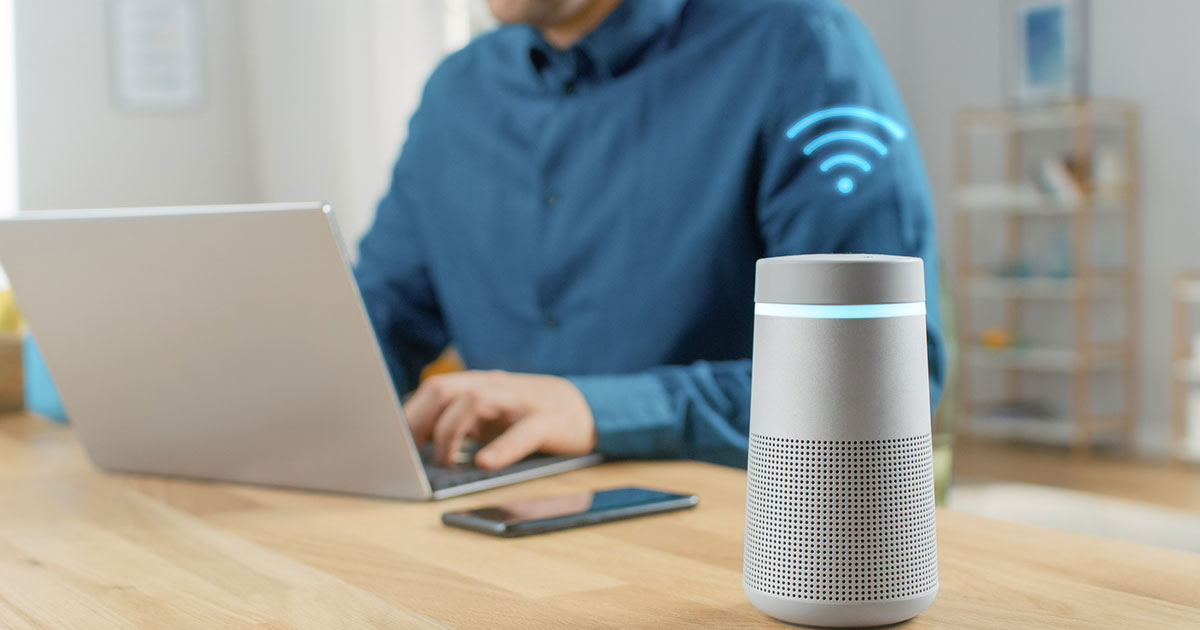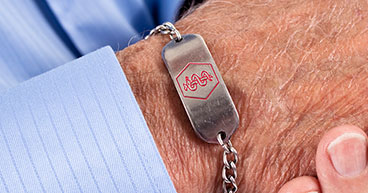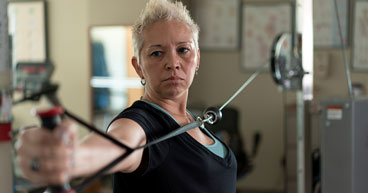
With artificial intelligence (AI), cell phones and smart watches, most people are never really alone, even when there’s not another human being nearby. That’s certainly the case for those who have virtual assistants, the digital home companions that perform an endless array of tasks at our command. They can answer questions, offer up reminders and alert us of pending deliveries.
These AI-enabled devices have exploded in popularity since Apple first installed Siri on its iPhone 4 in 2011. According to the data firm Statista, nearly 150 million Americans use some form of voice assistant and the number is growing.
But virtual home assistants can do more than help out by turning off the bedroom lights at night or giving you the latest weather forecast. In fact, they can be useful for a cancer patient.
In this article we’ll explore the ways cancer patients can use virtual home assistants. Topics include:
- What is a virtual health care assistant?
- Virtual assistants for cancer patients
- Risks of using a virtual assistant in health care
If you’ve been diagnosed with cancer and are interested in a second opinion on your diagnosis and treatment plan, call us or chat online with a member of our team.
What is a virtual health care assistant?
The idea behind AI-powered assistant devices is really nothing new. Think of Mr. Spock asking the computer for information on the planet below on Star Trek, or astronaut Dave Bowman’s command to “open the pod bay doors, Hal” in 2001: A Space Odyssey.
Today, virtual assistants are built into a variety of gadgets and devices. If you have a smart phone, it’s likely to have a virtual assistant installed. For instance, you can set your Apple iPhone to respond when you call out Siri.
Other assistants are tabletop or smart speaker devices of various shapes and sizes that are connected to your home internet service and respond to voice commands, such as: “Alexa, what’s today’s weather?”
The most common virtual assistants are:
- Apple’s Siri
- Google Assistant
- Amazon’s Echo
- Microsoft’s Cortana
- Samsung’s Bixby
Most of these AI programs can perform similar tasks, such as providing entertainment, interacting with smart devices, such as lights and thermostats, and answering questions, including those about cancer.
Some health care technology companies have or are launching proprietary virtual health care assistants that may be available to patients (often with monthly fees) or used in doctors’ offices to help with record keeping or scheduling or to gather patient information.
Virtual assistants for cancer patients
Ten ways a virtual home assistant can help cancer patients perform a wide variety of tasks are listed below.
Medication reminders: You can ask your home assistant to remind you when it’s time to take your medication or renew a prescription.
Schedule management: Home devices can set up a virtual calendar of upcoming appointments and offer reminders at times of your choosing.
Nutrition information: Your device can provide nutritional information, such as calorie or fat content, on specific foods and suggest recipes.
Sleep and relaxation support: You can ask your device to play peaceful music or sounds, such as falling rain or a babbling brook to help fall asleep or relax.
Exercise help: Many virtual assistants offer exercise routines, such as virtual yoga sessions, to help keep you active.
Entertainment: Music is often a stress buster and most home assistants are able to play your favorite tunes. Some devices offer trivia, jokes and other forms of entertainment.
Orders and deliveries: Some devices may compile shopping lists for groceries or health care products and then arrange to have them delivered.
Family face time: Many of the virtual home assistants have screens that allow patients to place video calls with loved ones. They also allow family members to check in on a patient from long distance.
Information and education: Your device may be able to answer specific questions about your type of cancer, symptoms and cancer treatment options.
Emergency assistance: Some virtual assistants can call 911 when your phone is not within reach. Other assistants allow you to call a friend or family member with a voice prompt.
Risks of using a virtual assistant in health care
Patients should be aware of potential pitfalls with using virtual home assistants to help with their health care, including those listed below.
Data harvesting: Virtual home assistants are designed to gather data from their users. With every question asked or task performed, they compile information about user habits and preferences and use that information to suggest future tasks or products or services. So, if you are concerned about privacy, you may want to learn more about your device’s privacy settings and how data your device gathers from you may be used. The Federal Trade Commission offers advice on protecting your privacy with these devices.
HIPAA compliance: Voice recognition virtual assistant devices are not compliant with the Health Insurance Portability and Accountability Act (HIPAA), the federal law designed to protect patient privacy.
“It is so important that these virtual assistants be held to HIPAA standards due to many patients having personal information including their medications, schedules for appointments, and other healthcare related information on these devices,” says Anna Chuhran, BSN RN, a registered nurse at City of Hope Cancer Center Atlanta.
If you are unsure about your device’s HIPAA status, you can just ask it. For instance, Alexa describes itself as “HIPAA eligible” for select skills. Devices designed or offered by health care technology companies are more likely to be HIPAA compliant. But always check.
Information sources: Virtual assistants powered by AI troll the internet and get information from a variety of sources to answer users’ queries. So, when you get an answer to a question about health care, you may not always know where the information is from and whether its accurate. In some cases, the device may tell you the source. In general, it may be best not to base decisions solely on information you receive from a device, but to check with your care team or use it to formulate questions from your doctor.
“When it comes to asking a virtual assistant a question, patients should make sure the assistant is actually giving them information from a credible site,” Chuhran says.
If you’ve been diagnosed with cancer and are interested in a second opinion on your diagnosis and treatment plan, call us or chat online with a member of our team.


